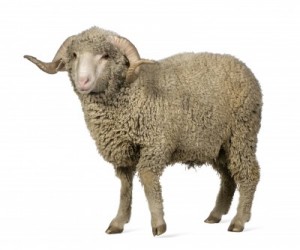 While reading through the story of the Exodus in preparation for Pesach, we again read the three verses in Exodus 4, that tells about the circumcision of Moses’ son. Trying to resolve some of the cryptic words, I read the Jewish Publication Society’s commentary on the section. In this commentary is some really interesting parallels between circumcision and the Pesach lamb that is mentioned a bit later in Exodus. To summarize some of these points:
While reading through the story of the Exodus in preparation for Pesach, we again read the three verses in Exodus 4, that tells about the circumcision of Moses’ son. Trying to resolve some of the cryptic words, I read the Jewish Publication Society’s commentary on the section. In this commentary is some really interesting parallels between circumcision and the Pesach lamb that is mentioned a bit later in Exodus. To summarize some of these points:
1. The reference to the firstborn – Although the scriptures do not specifically tell us that this is referring to Moses’s firstborn, it is interesting to read in the commentary that the most ancient text have verse 20 referring to “son” and not “sons” as we now have. Also, if Moses had multiple sons, why would circumcising one solve the problem?
Israel is also called YHVH’s firstborn in Ex 4:20 –
Then you shall say to Pharaoh, ‘Thus says the Lord, “Israel is My son, My firstborn.
YHVH also states from the start that it will be the life (blood) of the firstborn that will make Farao change his mind. Ex 4:23 –
So I said to you, ‘Let My son go that he may serve Me’; but you have refused to let him go. Behold, I will kill your son, your firstborn.â€
The blood of the lamb, in its first year, is what saved the firstborn sons of Israel.
Both the blood of the circumcision and the blood of the lamb averts the evil.
From the JPS Commentary :
The Hebrew phrase be-damayikh ḥayi, emphatically reiterated, was interpreted by the rabbis to mean “survive through your blood [plural]â€; that is, the survival and redemption of Israel was assured because of the two mitzvot—that of circumcision and that of paschal sacrifice.
2. Inclusion into the nation – In Genesis 17:9–14 it is clear the circumcision was a pre-condition to the entry into the nation. So was the blood of the lamb a pre-condition into the inclusion of the nation that would be freed from the Egyptians.
3. The order and sequence of the circumcision and the firstborn – rather than me trying to reword it, let me quote the piece from the JPS Commentary on Exodus:
The featuring of the circumcision episode following the reference to the firstborn provides an artfully wrought literary framework for the entire narrative, one that encompasses the struggle for liberation from Pharaoh’s oppression. That struggle begins with Moses’ setting out to return to Egypt (v. 20), and its successful conclusion is signaled by the death of the Egyptian firstborn (12:29–36). This latter is followed immediately by the law requiring circumcision as the precondition for participation in the paschal sacrifice (12:43–49), which in turn is followed by the law of the firstborn (13:1, 11–15). The effect is a thematically arranged chaism.
Another very interesting insight for me was the comment on Ex 4:25
Then Zipporah took a flint and cut off her son’s foreskin and threw it at Moses’ feet, and she said, “You are indeed a bridegroom of blood to me.â€
Why does the scriptures specifically mention “cut off”? The word used here in the Hebrew is “karat”. Normally the word should be m-w-l. However, in Gen 17:9-14 the penalty for not performing the circumcision is that you will be “karat” “cut-off from his kin”.
Maybe all of this also sheds some light on why the circumcision is a prerequisite for the Pesach meal. Why is it not a prerequisite for Sukkot or Yom T’ruah? Other common themes like keeping these days as a shabbat is repeated in every case. Why is circumcision not repeated?









Leave a Reply